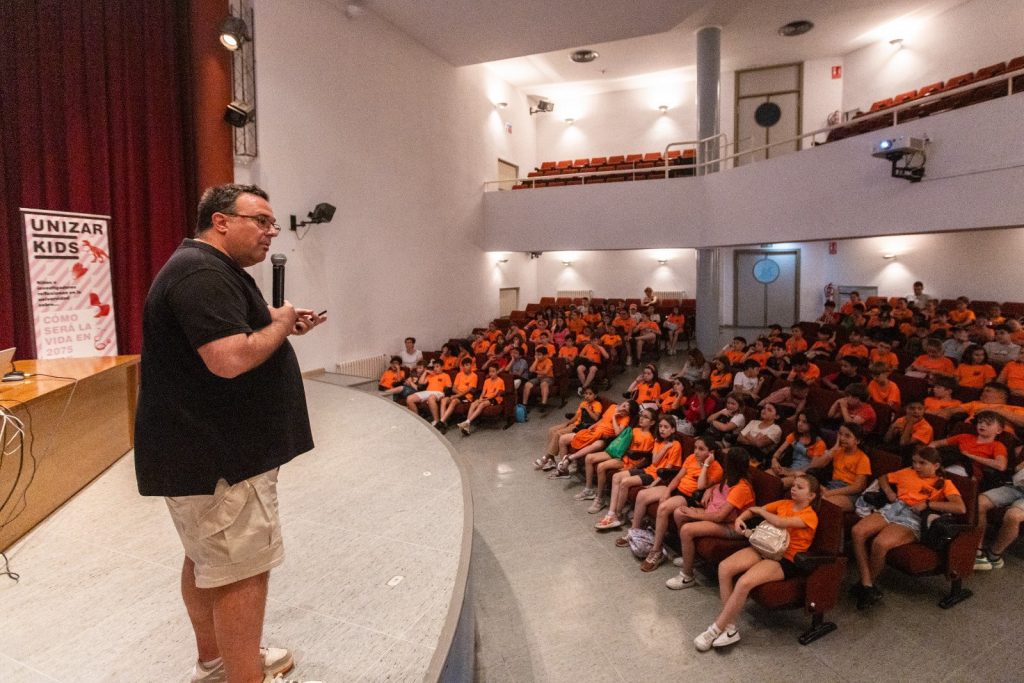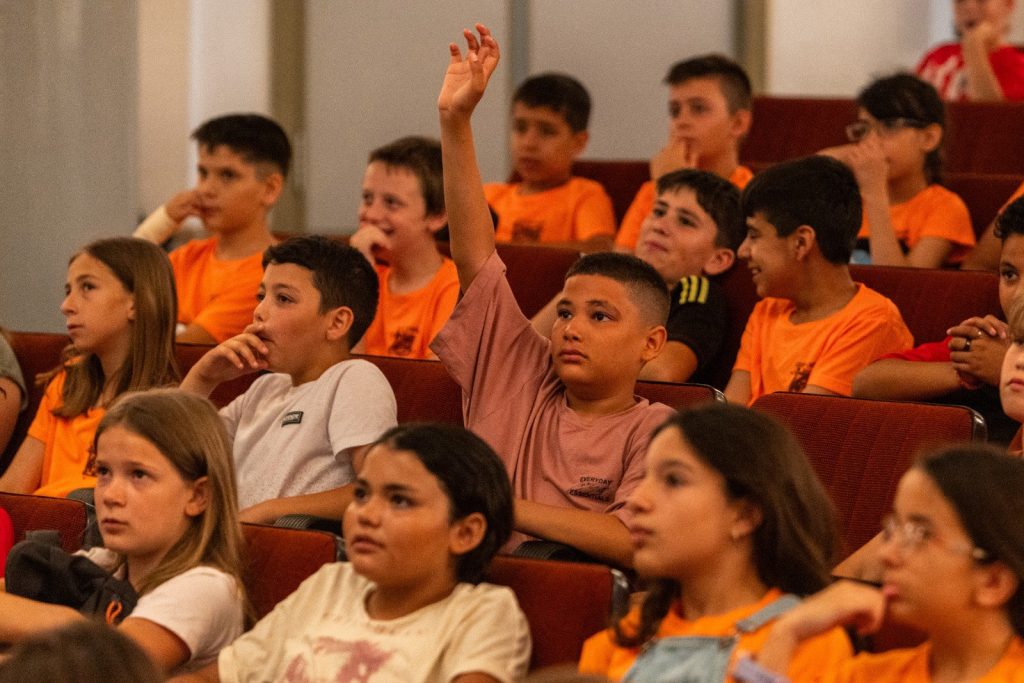(Zaragoza, Tuesday, 17 June 2025). In the final decades of the 21st century, the climate in Teruel is expected to become warmer and increasingly marked by more frequent extreme weather events. This is what Miguel Ángel Saz, geographer at the University of Zaragoza, stated during his talk “Your summers won’t be my summers: What will the climate be like in 2075? Can we all face the challenge of a hotter planet?”, held today at the university campus in Teruel.
The session was part of Unizar Kids, a science outreach activity that today held two sessions at the university facilities, attended by over 160 pupils in 5th and 6th grade from Miguel Vallés and Ensanche public schools in the city of Teruel. The schoolchildren, welcomed by Mamen Aguilar, Vice-Rector of the Teruel Campus, also had the opportunity to learn about and reflect on what farms might be like in the future, guided by veterinarians David López Carbonell and Manuel Sánchez Díaz, researchers at the IA2 Institute (a joint center between UNIZAR and CITA).
While reducing emissions still offers a chance to mitigate global warming, adapting to this new reality will also be essential. In this regard, Miguel Ángel Saz, professor in the Department of Geography and researcher with the “Climate, Water, Global Change and Natural Systems” group at IUCA-Unizar, emphasized that “the climate crisis can worsen inequalities, which is why it is crucial to ensure that no one is left behind in this process of adaptation. We must approach adaptation with solidarity and a commitment to fighting poverty.”

In the second talk, “How will animals live on future farms? What about our pets? New ways of coexisting and feeding ourselves”, early-career researchers David López Carbonell, veterinarian, and Manuel Sánchez Díaz, biotechnologist, both PhD students in the Animal Production programme at the Faculty of Veterinary Medicine and researchers at IA2, explained that “our society is moving towards precision livestock farming, which can help us produce better-quality food while ensuring animal welfare.”
They added that “farms of the future will be highly technological: sensors to detect if a cow is sick, robots that provide feed, and intelligent systems that help ensure animals are better cared for and live with greater well-being.” Regarding pets, the researchers suggested that “in the future, they could have AI-based veterinarians, personalized treatments, and even toys that detect if they are sad or bored.” The topic of future food was also addressed: “lab-grown meat, biotech-enhanced foods, or new, more respectful ways of raising animals.”
The 7th edition of “Unizar Kids: What will life be like in 2075?” will continue tomorrow, Wednesday, in Huesca. Representing the Huesca Campus Vice-Rectorate, Sara Malo will welcome students from Juan XXIII, Santa Ana and CRA Monegros schools at the auditorium of the Faculty of Business and Public Management, where they will have the chance to reflect on whether the planet will be able to feed us in 2075, and what discoveries may have been made in the Universe by then.

Sparking curiosity about the world around us
The Unizar Kids outreach initiative “What will life be like in 2075?” aims to plant the seed of curiosity and interest in the world from an early age, promote the scientific work of Aragón’s public university, and bring it closer to young students—while encouraging scientific vocations in both girls and boys.
Unizar Kids is organized by the Scientific Culture Unit of the University of Zaragoza, in collaboration with the Department of Educational Innovation of the Government of Aragón’s Ministry of Education. It forms part of the “Researchers at Schools” initiative and serves as a pre-event for the European Researchers’ Night project “G9-SCIENCE4ALL”, funded by the European Union under the Horizon Europe research and innovation programme (Grant Agreement No. 101162477).

